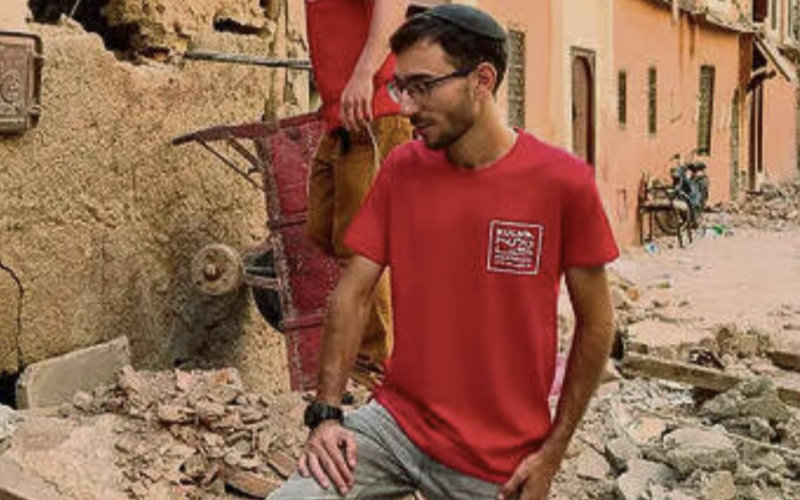Israelis of Moroccan Descent Rediscover Roots Amid War, Fueling Return Migration Wave

In the midst of war, Israeli Moroccans are increasingly choosing to return to Morocco, where they rediscover their roots.
According to the Israeli news site Ynet, more and more Israelis are choosing Morocco as a new destination, particularly those of Moroccan origin. This is the case of Neta Hazan, 39 years old. This Israeli of Moroccan origin has not only decided to settle in Morocco, but she has also obtained the Moroccan identity card. Her father, settled in Israel, had left Morocco at the age of 4. "I always knew I had to go to Morocco one day: it’s my culture, my language, my customs. How could I not have gone there?" Hazan said.
After obtaining a master’s degree in conflict management and working with Israeli-Palestinian peace organizations, Hazan made a journey of discovery of her roots in Morocco in 2016. She immediately fell in love with Fez. "I found my father’s childhood home," she said. She then returned with her father, sister and mother, living in Rabat until the Covid-19 pandemic forced her to return to Israel. After her mother’s illness and recovery, and the birth of her son, Hazan is determined to return.
Hazan is fighting to obtain a Moroccan passport for her son, "which is complicated for a single mother: they don’t understand a child without a father," she laughs. "But we’ll be back, for sure." She is one of dozens of young people in their thirties and forties, from the second generation of Moroccan immigrants, who have chosen to resettle in Morocco. They are businessmen, actors, comedians, academics, from diverse social and economic backgrounds, and from all political persuasions. Most of them are of Moroccan origin, with varied religious, secular or traditional profiles.
"For Moroccans, we are Moroccan first, whether we are Jewish or Muslim," explained Chen Elmaliach, 41, who has been living in Morocco for two years. She is trying to obtain her Moroccan passport. "Being Moroccan has never left me," confided the woman who was sent to cover the Moroccan pop scene for a magazine. She continues: "Morocco is here and now, it’s important for my life - not Los Angeles, where I lived, nor Berlin or Paris. [...] For personal reasons, she and her daughter have temporarily returned to Israel, but Elmaliach continues her efforts to obtain Moroccan nationality. "I can’t settle anywhere, but Morocco is different: its scent, its colors, its language, its melody, everything. It’s in my DNA," she continued.
This wave of migration from Israel to Morocco is not new. It began several years before the Abraham Accords, which came into effect in December 2020. In 2018, a wave of Israeli criminals and people fleeing divorce cases had rushed to Morocco. These individuals had taken advantage of a legal loophole allowing them to avoid prison because of their Moroccan origins. Before the agreements, the rabbinical courts issued Hebrew documents proving Moroccan ancestry for the acquisition of citizenship. But after the denunciation of a criminal network, stricter judicial authorizations have complicated the procedure. After the agreements, these criminals were extradited or detained in Morocco.
Related Articles
-

Morocco’s Marriage Crisis: Divorces Surge as Weddings Plummet, Reshaping Society and Economy
10 August 2025
-

Moroccan Highway Authority Faces Legal Backlash Over Stray Animal Accidents
10 August 2025
-

Billion-Dirham Road Project Aims to Revolutionize Rural Morocco’s Infrastructure
10 August 2025
-

Marrakech Taxi Chaos: Locals Stranded as Drivers Favor Foreign Tourists
10 August 2025
-

Marrakech Challenges Celebrities in Grueling ’Special Forces’ Reality Show
9 August 2025